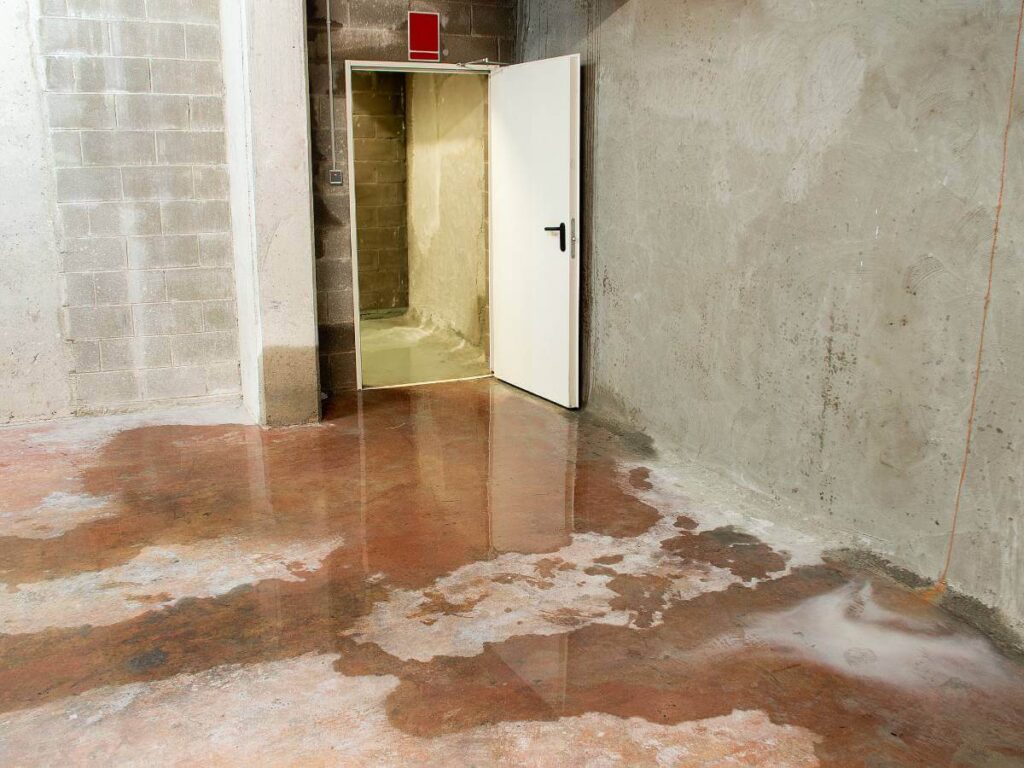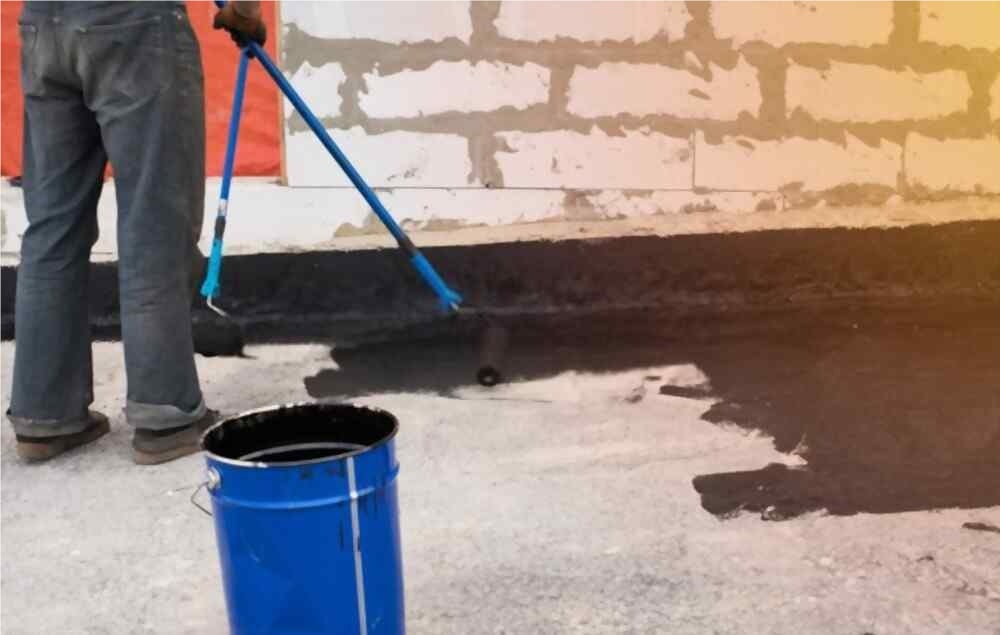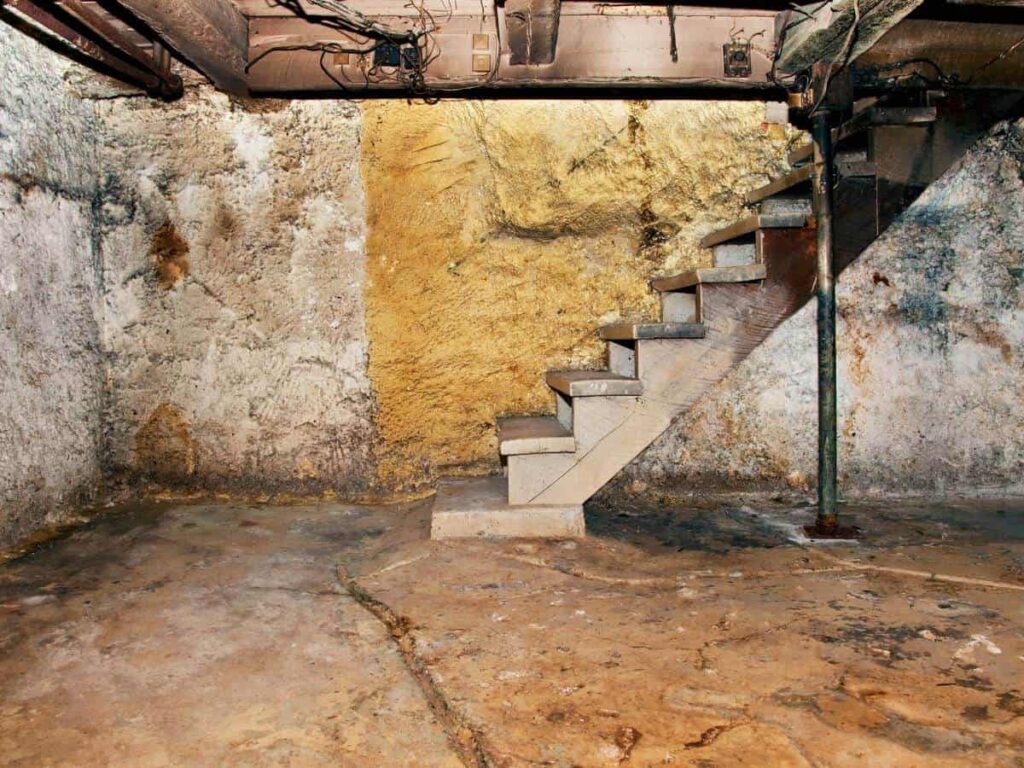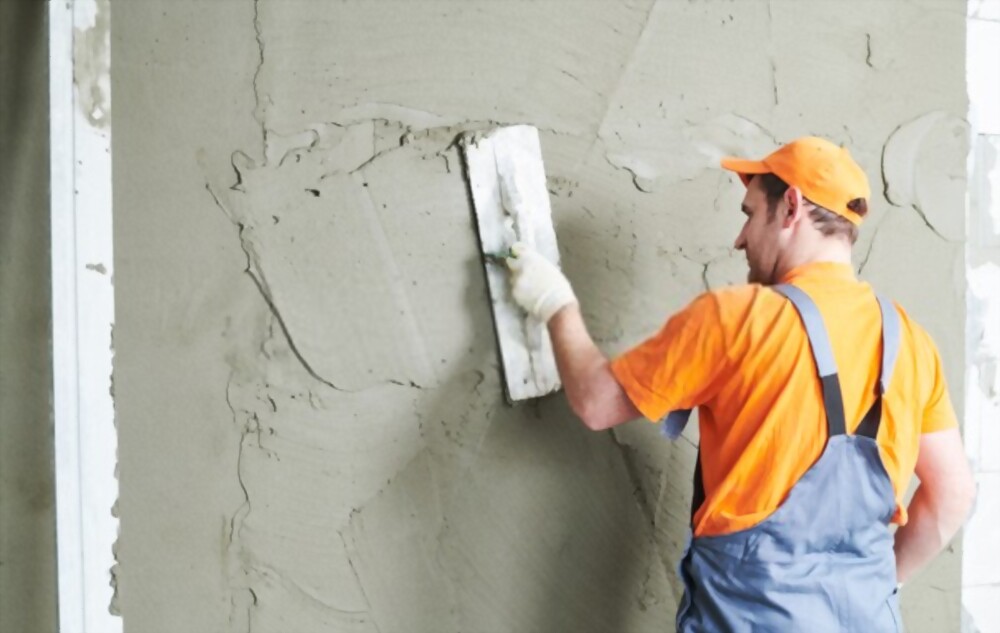Many people think that humidity is simply a necessary evil – something that can’t be avoided, but must be tolerated. But the truth is, excessive humidity can have serious consequences for your home and its inhabitants.
Why do you need to remove humidity from your basement?
Humidity in your basement can cause a number of issues, including mold and mildew, musty odors, and even damage to furniture and other items stored in the basement. By removing excess moisture from your basement, you can help to maintain a healthy living environment and protect your stored belongings from damage. It is important to take measures to reduce humidity levels in your basement in order to prevent potential problems.

Here are four ways that excess humidity can damage your basement:
It Can Cause Damage To Your Structure And Flooring
Humidity can cause wood and other materials in your basement to expand and contract, making them susceptible to damage. It can also cause the flooring to warp and rot. In extreme cases, this can lead to structural collapse.
It Can Cause Mold And Mildew To Grow
Moisture encourages mold and fungus to grow, which can cause respiratory problems and even illness in residents of your home. Mold and fungus also produce toxins that are hazardous to your health – beware if you experience any symptoms such as sneezing, coughing, or congestion.
It Can Cause Water Damage
Moisture on the walls of your basement will cause water vapors to seep into the ground outside the structure, leading to flooding or even the destruction of property nearby. This is especially a problem if you live in an area with severe weather conditions – in a tornado zone for example – where rainwater can quickly accumulate on the ground below your house.
It Can Cause Basement Insulation To Fail
If you have installed insulation in your basement floor or walls – which is a good idea if you want to keep your home cooler in summer or warmer in winter – then moisture will create condensation on the insulation, creating moisture issues that could eventually lead to its failure.
How to remove humidity from your basement?
Humidity in your basement can cause a number of problems, from mold and mildew growth to musty odors and even damage to stored items. Fortunately, there are several steps you can take to reduce the humidity in your basement. Start by sealing any cracks or openings in your basement walls or floor to prevent moisture from entering. Then, install a dehumidifier to draw out the moisture from the air. Additionally, be sure to open windows when possible, circulate air with fans, and ventilate any appliances that generate moisture. With a few simple steps, you can reduce the humidity levels in your basement and keep it dry and comfortable.
Here are some ways to remove humidity from your basement:
Install a Dehumidifier
Installing a dehumidifier can be an effective solution to removing excess humidity from your basement. Dehumidifiers are designed to draw moisture from the air, making them ideal for damp basements. Make sure to measure the space before purchasing a dehumidifier, as they come in different sizes. Additionally, consider the energy efficiency of the model you choose, as some models can be very expensive to run. With the right dehumidifier, you can reduce humidity in your basement and create a healthier living environment.
Open Windows and Doors
One of the most effective ways to remove humidity from a basement is to open windows and doors. This will allow air circulation and help to reduce the amount of moisture in the basement. Additionally, strategically placing fans in the basement can help to circulate the air, even more, further reducing the humidity levels in the basement.
Circulate Air with Fans
One way to effectively remove humidity from a basement is to use fans to circulate the air. Fans can be used to draw out stale, humid air and replace it with fresh, dry air from outside. This can help reduce the level of humidity in the basement and make it a more comfortable living environment. Additionally, placing dehumidifiers in the basement can help reduce the amount of moisture in the air and help maintain an ideal humidity level.
Increase Ventilation
Increasing ventilation in your basement is an effective way to remove humidity. This can be done by opening windows and doors or installing a fan to help circulate the air. Additionally, exhaust fans can be installed to draw humidity out of the room and release it outside. Ventilation helps to reduce condensation and prevent the growth of mold and mildew.
Use a Mop and Bucket
Mopping is a great way to remove humidity from a basement. To do this, it is recommended to use a mop and bucket filled with mild detergent and water. Make sure to wring out the mop until it is almost dry before using it to clean the floors. This will help to prevent over-saturation of the floor and ensure that all areas are properly cleaned.
Basement Waterproofing
Basement waterproofing is an important part of protecting your basement from moisture and humidity. There are a variety of options, such as sealing cracks and gaps, adding a sump pump, and installing a dehumidifier, that can help keep your basement dry. Sealing any cracks and gaps in the foundation walls is key to preventing water from entering your basement. Installing a sump pump will remove standing water from the floor, and installing a dehumidifier will help remove excess humidity from the air. Taking these simple steps can help prevent significant damage to your home.

How to prevent humidity using basement waterproofing?
Basement waterproofing is a great option for preventing humidity from building up in your basement. By sealing the foundation walls and installing a sump pump, you can keep water from seeping into your basement, reducing the amount of moisture in the air. Furthermore, adding insulation to the walls can also help reduce humidity levels. Proper ventilation is also important for removing excess moisture. By installing a dehumidifier and using fans to circulate air, you can keep your basement dry and comfortable.
Read More: 5 Tips For Basement Waterproofing
How to get rid of wet insulation?
To eliminate wet insulation in your basement, start by locating the source of the moisture and addressing any underlying causes. If there is a water leak, have it fixed as soon as possible. Then, use a dehumidifier to reduce the humidity levels in the basement. Be sure to set the humidity level to below 50%. Additionally, you can try using a fan to circulate air and help dry out the insulation. For more serious cases, you may need to replace the wet insulation with new material. Taking steps to reduce humidity and moisture levels can help prevent future issues with wet insulation in your basement.
What is the ideal basement humidity level in winter weather?
Maintaining the ideal level of humidity in a basement during winter weather can be a challenge, as temperatures drop and the air becomes drier. According to the U.S. Environmental Protection Agency, it’s best to keep relative humidity levels in the basement between 30 and 50 percent, as levels outside of this range can cause issues with mold and mildew growth. To achieve this level, homeowners should use a dehumidifier to remove excess moisture from the air. Additionally, increasing ventilation by opening doors and windows helps to reduce humidity levels in the basement.
If you’re looking for a company that can help you with basement waterproofing, then you should definitely consider Hi Tech Contracting & Restoration Corp. We have over 10 years of experience in the field and will be able to help you get the job done quickly and efficiently. They use the latest technologies and techniques, and will always make sure that your basement stays waterproof and safe.
Social:



